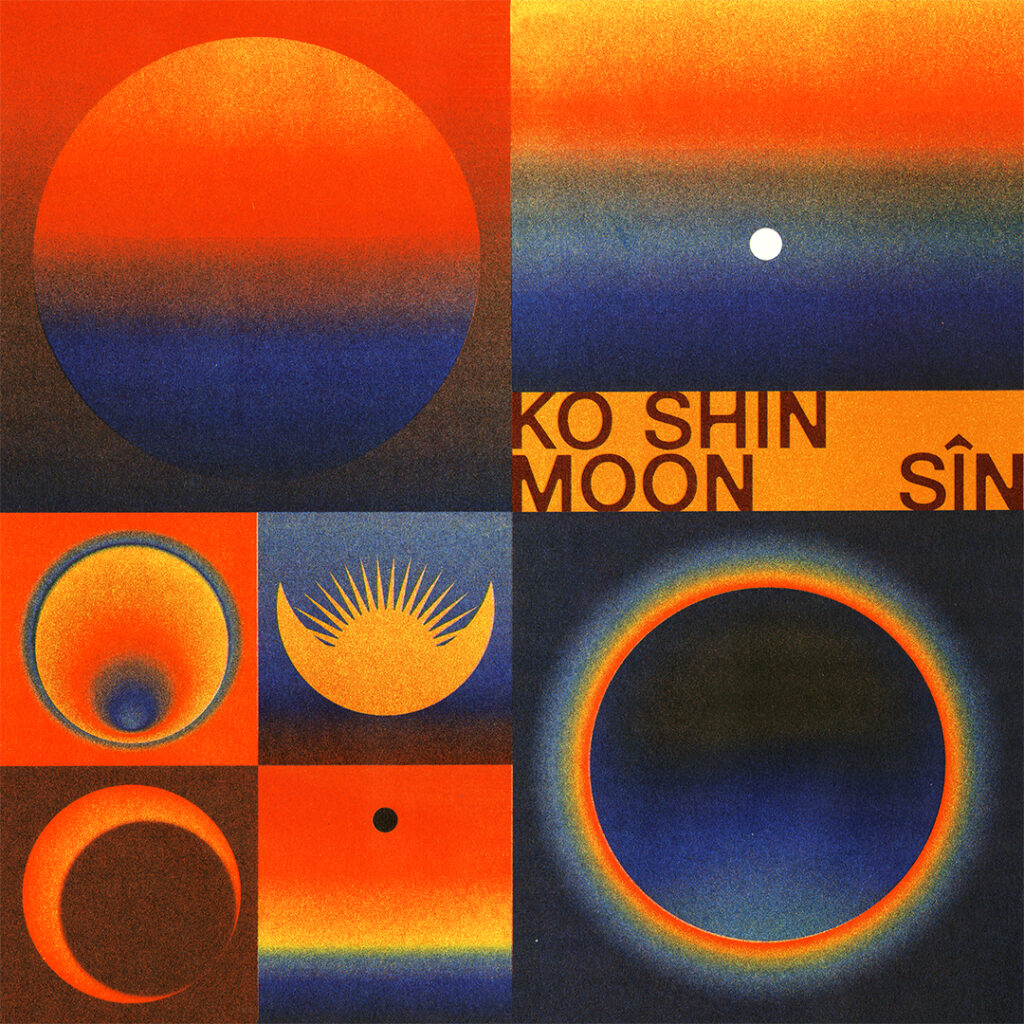Paris-based duo Ko Shin Moon invites listeners into a world where devotion and dance blurs into one pulse with their new album Sîn.
Founded in Paris by Axel Moon after four years of studying and collecting folk instruments in India now with Myriam El Moumni on synths and machines, Ko Shin Moon channels a wide constellation of influences, psychedelia, space disco, cold wave, and folk traditions from across the globe. Their name, borrowed from an exotica record by Haruomi Hosono, nods to a lineage of experimental innovators from Ryuichi Sakamoto to Bill Laswell.
Hypnotic, human, and deeply alive, It’s a record that sounds like moonlight spilling over a desert rave. Named after the Mesopotamian moon deity, Sîn traces a cycle from dawn to dusk, from open fields to electric cities. Ten songs sung in Arabic, French, Italian, Turkish, and Tamil create a sonic landscape that feels borderless with a range of themes of the forbidden, the pursuit of the absolute, finiteness, speed, and hyperconnectivity. These songs were born on the road shaped by improvisation, by the faces of audiences across continents, by moments that could only exist between cultures.
My personal favorite is Lean on Love. There’s something quietly transcendent about it: the way Damini Bhatlach’s voice floats over the electronic pulse, how the rubab and dotar shimmer like fragments of memory before dissolving into the soft hum of the mellotron. The Tamil lyrics, written by Hania Luthufi, sounds and feels beautiful, like a prayer for connection in a hyperconnected world. It’s a song about surrender, not spectacle. Every layer builds toward calm rather than climax, turning what could’ve been a nostalgic fusion into something spiritual and contemporary. In a record full of movement and tension, “Lean on Love” is the still point, a reminder that in all the noise and speed, love remains the only steady rhythm
Yet the 5th track, “Perperişan (Devastated)” featuring Turkish pop star Mabel Matiz has faced controversies. The lyrics, a confession of love between two men, has been filed a criminal complaint by the Turkish Interior Ministry for “violations of morals” and “obscenity.”
Despite the controversy, “Perperişan” has already surpassed 2 million streams, igniting discussions about artistic freedom and LGBTQ+ representation in Turkey’s cultural sphere. “You may not like a work of art,” Matiz wrote on X, “but if you turn it into the subject of a criminal probe, you infringe on freedom of expression.”
Through it all, Sîn stands as a testament to Ko Shin Moon’s vision, a borderless music that dares to bridge past and future, East and West, personal emotion and collective experience

For Ko Shin Moon, Sîn was never meant to be a political record, but in its orbit of love, mysticism, and transgression, it became one. It’s a reminder that beauty can still be an act of rebellion, and that sound itself can be a kind of resistance, to silence, to borders, to fear.
Their music lives between places and this album lives between worlds.



